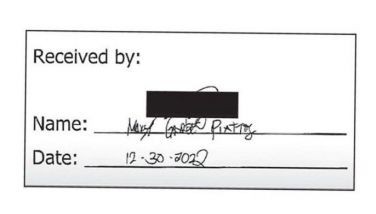Oil firms soften price increase
November 1, 2005 | 12:00am
The good news is that four petroleum companies, including the so-called "Big Three," have cut by 60 to 80 centavos per liter their pump prices because world market prices of crude oil have softened.
This, they said, would ease the impact of the expanded value-added tax (EVAT).
The bad news is, because of the EVAT, which takes effect today, motorists will still pay more for gasoline by an average of nearly P2 per liter despite the price cut.
Motorists would be paying more if world market prices of crude oil had not gone down, oil companies said.
Petron, which initiated the price cut, said it would trim its prices by 60 centavos per liter on all products, while P1 per kilo would be trimmed off the price of liquefied petroleum gas (LPG) or cooking gas.
Pilipinas Shell Petroleum Corp., Caltex Philippines and Total followed suit later in the day.
In Petron’s case, its Blaze high-octane gasoline will sell beginning today for P39.88 per liter; XCS Plus premium gasoline for P39.08 per liter, Extra Unleaded gasoline for P38.35 per liter, regular gasoline for P36.13 per liter; kerosene for P34.87 per liter and diesel for P33.09 per liter.
Its LPG will sell for P44.62 per kilo.
Petron public affairs manager Virginia Ruivivar said the price cut was supposed to be P1 per liter based on current international crude prices.
"We want to help soften the impact of VAT, so we will implement the rollback by November 1. Since it is still based on preliminary computations, we opted to reduce our prices initially by 75 centavos per liter," she said.
Of the 75 centavos per liter cut, 15 centavos will be passed on to Petron’s dealers to increase their margin. Therefore consumers will only enjoy a 60-centavo per liter reduction.
"Our dealers have been complaining about the very thin margin for quite sometime now so we decided to give them the 15 centavos," Ruivivar said. Of the 1,240 gas retail stations, half are run by dealers.
Petron may further trim its prices if world market prices of crude oil continue their downward trend, Ruivivar said.
Crude oil prices normally go up towards the end of the year because more fuel is used for heating during the winter season.
However, experts predict that crude oil prices may actually go down because high prices tend to dampen economies that, in turn, lower demand for oil.
"This trend may have positive impact on us but we have to wait," Ruivivar said.
Petron is 40-percent owned by state-run Philippine National Oil Co. and corners about 38 percent of the market.
Shell external affairs general manager Roberto Kanapi said their prices would increase by 18 centavos to P2.50 per liter due to the impact of EVAT alone.
"There is a rollback due to reduction in prices abroad. If we will add the mitigating factors such as the reduction in tariff and the removal excise tax, the net effect of that will be a rollback of 60 to 80 centavos per liter," Kanapi said.
Energy Secretary Raphael Lotilla said the impact of EVAT on oil products is significantly lower than originally projected by government analysts.
"Two major factors contributed to this reduction: one is the downward adjustments effected by local oil companies to reflect world oil prices and second is the government’s move to reflect the two-percent tariff reduction for oil products to be sold on November 1," he said.
Based on the Department of Energy’s estimates, diesel would increase by 22 centavos per liter instead of 88 centavos originally estimated. Kerosene will increase by P1.40 per liter instead of P2.06 per liter, while unleaded gasoline will rise by P2.37 per liter instead of P3.03 per liter. LPG is estimated to increase by P22.17 instead of P35.37.
On electricity rates, the impact of the EVAT which will still be subject to approval of the Energy Regulatory Commission, Lotilla said the increase will vary depending on the grid.
In the Meralco franchise area, the average increase per kilowatt-hour is 60 centavos.
For those under the so-called lifeline rate or discounted rate, those consuming 0-50 kWh will pay only an additional P13.75 a month; for 51-75 kWh, P25.75 a month; for 76-100 kWh P46 a month; for 101-200 kWh, P118.44 a month; for 201 kWh to 300 kWh, P185.66 a month; for 301-400 kWh P257.73 a month; and for 401 kWh to 500 kWh, P344.51.
"We urge consumers to work closely with the government in monitoring the implementation of VAT by reporting any incident of overpricing or illegal practices," Lotilla said.
This, they said, would ease the impact of the expanded value-added tax (EVAT).
The bad news is, because of the EVAT, which takes effect today, motorists will still pay more for gasoline by an average of nearly P2 per liter despite the price cut.
Motorists would be paying more if world market prices of crude oil had not gone down, oil companies said.
Petron, which initiated the price cut, said it would trim its prices by 60 centavos per liter on all products, while P1 per kilo would be trimmed off the price of liquefied petroleum gas (LPG) or cooking gas.
Pilipinas Shell Petroleum Corp., Caltex Philippines and Total followed suit later in the day.
In Petron’s case, its Blaze high-octane gasoline will sell beginning today for P39.88 per liter; XCS Plus premium gasoline for P39.08 per liter, Extra Unleaded gasoline for P38.35 per liter, regular gasoline for P36.13 per liter; kerosene for P34.87 per liter and diesel for P33.09 per liter.
Its LPG will sell for P44.62 per kilo.
Petron public affairs manager Virginia Ruivivar said the price cut was supposed to be P1 per liter based on current international crude prices.
"We want to help soften the impact of VAT, so we will implement the rollback by November 1. Since it is still based on preliminary computations, we opted to reduce our prices initially by 75 centavos per liter," she said.
Of the 75 centavos per liter cut, 15 centavos will be passed on to Petron’s dealers to increase their margin. Therefore consumers will only enjoy a 60-centavo per liter reduction.
"Our dealers have been complaining about the very thin margin for quite sometime now so we decided to give them the 15 centavos," Ruivivar said. Of the 1,240 gas retail stations, half are run by dealers.
Petron may further trim its prices if world market prices of crude oil continue their downward trend, Ruivivar said.
Crude oil prices normally go up towards the end of the year because more fuel is used for heating during the winter season.
However, experts predict that crude oil prices may actually go down because high prices tend to dampen economies that, in turn, lower demand for oil.
"This trend may have positive impact on us but we have to wait," Ruivivar said.
Petron is 40-percent owned by state-run Philippine National Oil Co. and corners about 38 percent of the market.
Shell external affairs general manager Roberto Kanapi said their prices would increase by 18 centavos to P2.50 per liter due to the impact of EVAT alone.
"There is a rollback due to reduction in prices abroad. If we will add the mitigating factors such as the reduction in tariff and the removal excise tax, the net effect of that will be a rollback of 60 to 80 centavos per liter," Kanapi said.
Energy Secretary Raphael Lotilla said the impact of EVAT on oil products is significantly lower than originally projected by government analysts.
"Two major factors contributed to this reduction: one is the downward adjustments effected by local oil companies to reflect world oil prices and second is the government’s move to reflect the two-percent tariff reduction for oil products to be sold on November 1," he said.
Based on the Department of Energy’s estimates, diesel would increase by 22 centavos per liter instead of 88 centavos originally estimated. Kerosene will increase by P1.40 per liter instead of P2.06 per liter, while unleaded gasoline will rise by P2.37 per liter instead of P3.03 per liter. LPG is estimated to increase by P22.17 instead of P35.37.
On electricity rates, the impact of the EVAT which will still be subject to approval of the Energy Regulatory Commission, Lotilla said the increase will vary depending on the grid.
In the Meralco franchise area, the average increase per kilowatt-hour is 60 centavos.
For those under the so-called lifeline rate or discounted rate, those consuming 0-50 kWh will pay only an additional P13.75 a month; for 51-75 kWh, P25.75 a month; for 76-100 kWh P46 a month; for 101-200 kWh, P118.44 a month; for 201 kWh to 300 kWh, P185.66 a month; for 301-400 kWh P257.73 a month; and for 401 kWh to 500 kWh, P344.51.
"We urge consumers to work closely with the government in monitoring the implementation of VAT by reporting any incident of overpricing or illegal practices," Lotilla said.
BrandSpace Articles
<
>
- Latest
- Trending
Trending
Latest
Trending
Latest
Recommended





























